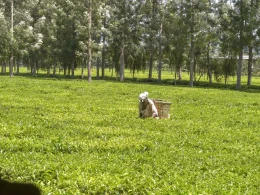The Royal Society for the Protection of Birds (RSPB) has launched an innovative agroforestry trial at its arable farm in Cambridgeshire, UK. The project aims to promote sustainable agriculture and biodiversity by integrating trees into arable farming systems.
The trial, which began in March, involves planting a mix of native tree species, including oak, ash, and hazel, alongside arable crops such as wheat, barley, and oats. The goal is to create a more diverse and resilient ecosystem that benefits both farmers and wildlife.
Dr. Emma Thomas, RSPB’s Head of Sustainable Farming, said: ‘By integrating trees into arable farming systems, we can reduce the environmental impact of farming while also improving crop yields and biodiversity.’
The trial is being monitored by a team of scientists and farmers, who are tracking the effects of the tree planting on soil health, pest control, and wildlife populations. The results will be used to inform future agricultural practices and policy decisions.
Benefits of agroforestry include: improved soil structure and fertility, reduced erosion, increased biodiversity, and enhanced ecosystem services. Agroforestry also has the potential to mitigate climate change by sequestering carbon in trees and soils.
The RSPB’s agroforestry trial is part of a broader effort to promote sustainable agriculture and reduce the environmental impact of farming. The organization is working with farmers, policymakers, and other stakeholders to develop and implement more sustainable agricultural practices.
‘This trial is an important step towards creating a more sustainable food system that benefits both people and the environment.’









